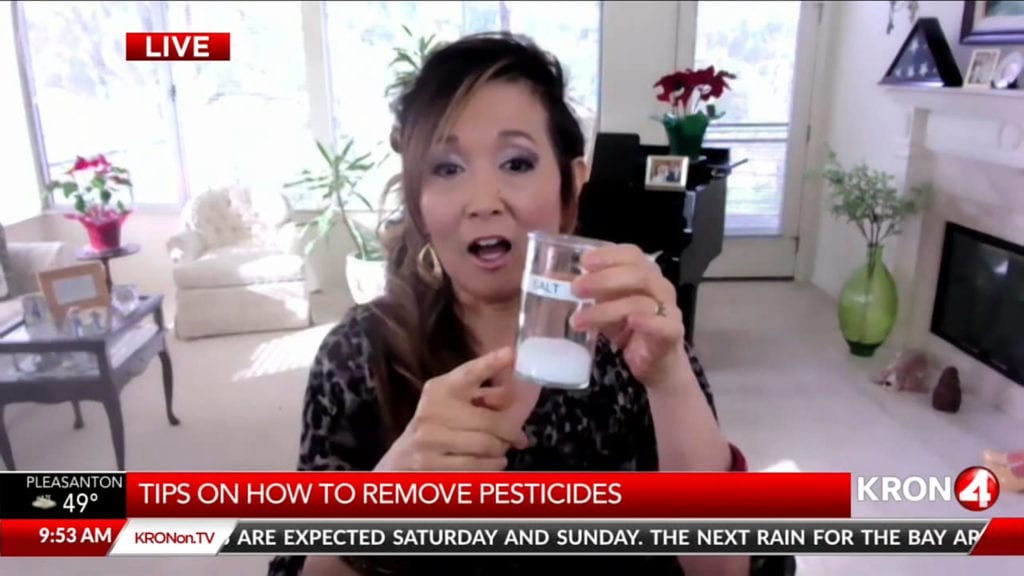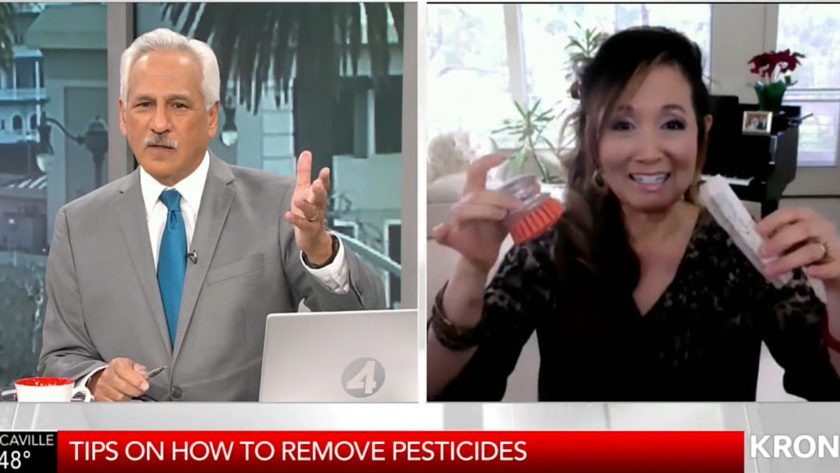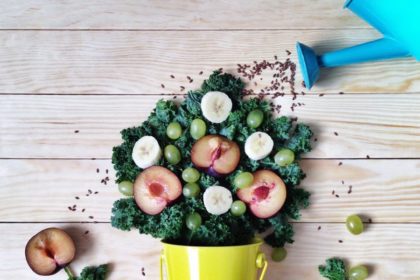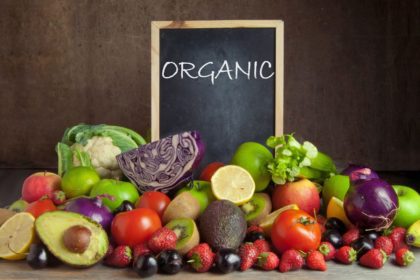Over the past couple of weeks, we talked about the benefits of a plant-centered lifestyle to help prevent chronic conditions associated with aging. But by eating more fruits and vegetables, are you exposing yourself to more pesticides? Here are some simple tips to reduce these potential health threats.
Organic vs Conventional — What’s the Difference?
Organic produce is generally 50% more expensive than conventional. Studies show there are no consistent differences in vitamin and minerals between organic and conventional produce, BUT organic produce has 18% to 69% more phytonutrients than conventional.
Top Food Sources of Pesticides
The following foods were found to be sources of various pesticides in adults and children:
- Apples, peaches, strawberries, pears
- Tomatoes, cucumbers, peppers, celery
- Lettuce, spinach, broccoli
- Dairy, meat, pizza
Pesticides in Animal Products Fruits and vegetables accumulate pesticides on the surface, but animals accumulate chemicals in their fat. Cooking can sometimes increase pesticide levels. Don’t wash meat, poultry, fish, or eggs. You won’t get rid of the pesticides since they’re stored in their fat, and instead the splashes of water will spread bacteria.
Should We Only Buy Organic Produce?
Buying organic dramatically reduces dietary exposure to pesticides, but does not eliminate them. One in 10 organic crop test samples had detectable levels of pesticide residues due to cross contamination from:
- Neighboring fields
- DDT (a pesticide) still present and persistent in the soil
- Accidental or fraudulent use of pesticide.
Commercial Vegetable Washes — Are they Worth the Money?
Commercial vegetable wash have made outrageous claims:
- “They’re proven to be 98% more effective than water”.
- “They’re 3, 4, 5, or even 10 times more effective than water”.
After researchers tested these products, they did no better than plain tap water in 196 test samples of lettuce, strawberries, and tomatoes. Some pesticides penetrate more deeply into the fruit or vegetable.
Simple Ways to Remove Pesticides
Just rinsing with plain tap water removes pesticide residues just as well as using a dish soap or produce wash, but in over six different pesticides, less than 50% of the residues were removed. Here are some effective methods to remove chemicals:
- Soak 10-20 minutes in full-strength VINEGAR.
- Using vinegar full strength can get expensive.
- Soaking potatoes in 5% acetic acid solution (vinegar) removed up to 100% of the pesticides.
- Diluted vinegar tested as being only marginally better than tap water for removing pesticide residues.
- Soaking potatoes in tap water removed 2% to 13% of the pesticides.
- Soak 10-20 minutes in SALT WATER.
- Works as well as (if not better than) full-strength vinegar.
- 10% salt solution (1 part salt to 9 parts water) — 40 grams salt to 400 ml water, that is, about 2-1/2 tablespoons salt to 2 cups water, so rinse well!

- Soak 12-15 minutes in BAKING SODA SOLUTION
- 1 teaspoon baking soda to 2 cups water
- Soaking for 2 minutes removed more pesticide than a 2-min soak in a bleach solution (used in commercial processing) or running under tap water.
4. Rub and scrub.
Peeling is more effective at removing pesticides that have penetrated the fruit or vegetable, but the bioactive compounds in the peels will be lost.
The mechanical action of rubbing the produce under tap water helps remove pesticide residues.
![]() Karen’s Fit Tip: Eat at least 3 fruits and 5 or more veggies a day — and fewer animal products. Researchers agree that consuming the most pesticide-laden fruits and vegetables is still better than not eating any fruits and vegetables — the health benefits clearly outweigh the potential risks.
Karen’s Fit Tip: Eat at least 3 fruits and 5 or more veggies a day — and fewer animal products. Researchers agree that consuming the most pesticide-laden fruits and vegetables is still better than not eating any fruits and vegetables — the health benefits clearly outweigh the potential risks.



